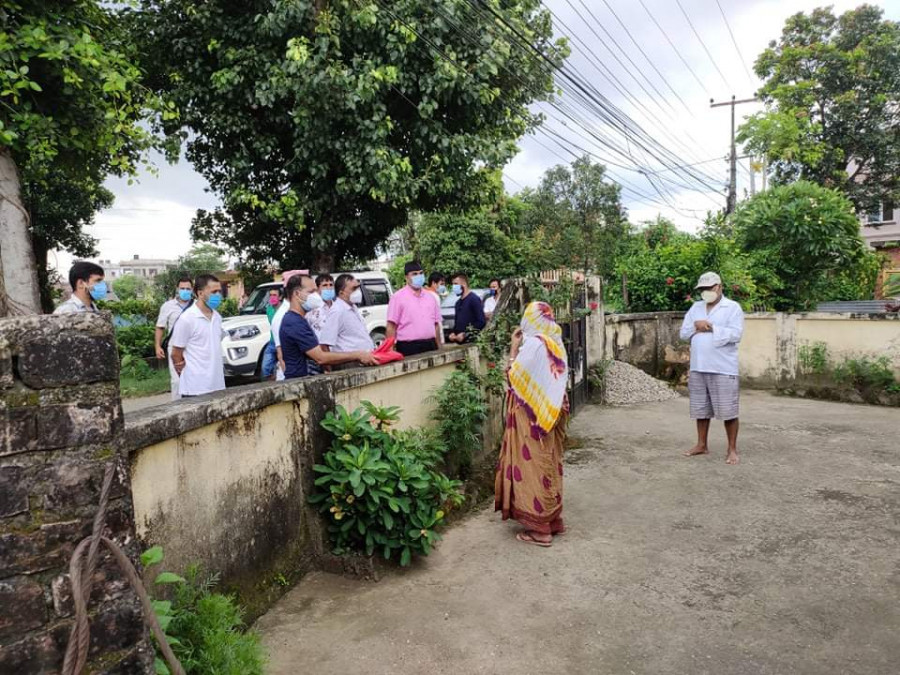Health
Monitoring those in home isolation crucial, experts say
Doctors advise authorities not to be lax as the UK variant of the virus is highly infectious and possibly more lethal.
Arjun Poudel
Placing infected people in home isolation without monitoring them will be too risky, as the new variant of the coronavirus is highly infectious and possibly more lethal, doctors have warned.
“Infected people could pass the virus to their family members and neighbours if their movements are not monitored,” Dr Prabhat Adhikari, an infectious disease and critical care expert, told the Post. “Both infection and death rate could be exacerbated if the movements and health condition of the infected people are not monitored.”
Of 4,056 confirmed active cases throughout the country as of Wednesday, 3,599 infected people are in home isolation and no agency is monitoring their movements and health conditions.
The Health Ministry reported 603 new cases and three deaths in the last 24 hours. Of the total new cases 70 are children under 20 years of age. The country’s overall infection tally has reached 281,564.
The Epidemiology and Disease Control Division said that of the total infections, the UK variant of the coronavirus, known as B.1.1.7., might be responsible for over 60 percent of the new infections in Nepal.
According to scientists, the UK variant is 40 to 70 percent more transmissible than the one that caused the first wave of coronavirus infection. They have also said that the virus is 64 percent more deadly than the previous strains.
“Infected people tend to stay at home until they become serious,” said Adhikari. “In many cases, patients died soon after they were hospitalised because their health conditions were not monitored at home.”
Last year too, death rates increased after health facilities got stretched with Covid-19 patients and a lot of people could not be admitted to hospitals.
Doctors have once again warned that health facilities could be overwhelmed within the next few weeks. They say the apathy on the part of the government authorities to contain the spread of the infection is as dangerous as the coronavirus itself.
According to the data provided by the Health Ministry, 80 infected people, whose health conditions are serious are being treated in the intensive care units in different parts of the country. Twenty five others, who are critical have been placed in the ventilator support.
Doctors say that young people and children are among those admitted in the intensive care units, after they suffered from the severe type of pneumonia caused by the coronavirus.
Most of the infected people residing in rented rooms in the densely populated cities cannot afford to have separate rooms and toilets for isolations. This, doctors say, increases the risk of the virus spreading in communities.
“There is also the risk of infected people hiding their condition lest they will be expelled from their rooms,” Dr Sher Bahadur Pun, chief of the Clinical Research Unit at the Sukraraj Tropical and Infectious Disease Hospital, told the Post.
Health experts have also decided the limited number of antigen tests the authorities have been performing along the Nepal-India border on people returning home from India, which is currently struggling to contain a second wave of infections.
The antigen tests are being performed only on those people having symptoms akin to Covid-19, despite studies showing that more than 50 percent of Covid-19 cases are asymptomatic.




 19.12°C Kathmandu
19.12°C Kathmandu















